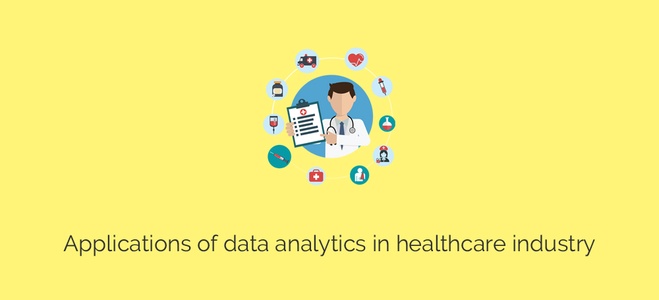Applications of data analytics in healthcare industry

Share This Article
Table of Contents
Subscribe to Our Blog
We're committed to your privacy. SayOne uses the information you provide to us to contact you about our relevant content, products, and services. check out our privacy policy.
Data Analytics in Healthcare Industry
The health care industry produces large amounts of data on a daily basis. Most of these data used to be hard copies but, now organizations are gathering data electronically. There are mainly 7 data sources that produce the bulk of the data.
- Electronic Health Records (EHR): Clinical records with patient details.
- Laboratory Information Management system (LIMS): Contains lab results
- Monitoring and diagnostic instruments: Data from instruments like MRI.
- Pharmacy: Medication details of the patient
- Instruments and human tracking system: Data contains location information of instruments and people.
- Insurance claim and billing: Contains insurance claims and billing details
- Hospital Resources: Employee list and hospital supply chain details.
The above data sources are getting enriched with newer forms of data as the technology advances. For example, there are hospitals that collect Genetic information in EHR.
Within this vast variety of data lies the valuable insights, which, when applied judiciously can bring in wonderful results. By discovering associations and patterns within this data, big data analytics has the potential to improve care, save lives and lower costs.
Managing these 'Healthcare Big data’ using traditional tools is near to impossible. It is very challenging not because of its volume but, because of its diversity and speed at which it must be managed. Modern big data technologies can solve these challenges. A robust big data architecture within the organization will unearth the hidden insights within this vast array of data.
Download Now: Development process for the layperson and what does it take to build an application
Big data analytics has the potential to bring in dramatic changes in the way industry operates. It can improve every area that produces some kind of data. Below are the major areas where big data analytics has a huge impact:
- Disaster planning : Both natural and manmade disasters will put tremendous pressure on the health care systems in that area. During a disaster, the demand for a particular service will increase way beyond its capacity. For example, during a flu outbreak, demand for ventilators will increase. Knowing the real-time location and availability of such facilities will be very helpful for the authorities in managing such disasters. Using data analytics, it is also possible to predict the outbreaks of some diseases and thus putting the authorities in a better position to manage it.
- Patient Flow: Healthcare is a time critical service and data analytics plays a crucial role in ensuring smooth patient flow and reducing waiting period. Predicting patient surge will help the authorities take the necessary step to reduce patient waiting time thereby giving timely treatment.
- Cost and Effectiveness : Data analytics can be used to compare the cost and effectiveness of treatments, public policies etc. Organizations can use cost and outcome data to check the effectiveness of medicines and stop prescribing medicines that are not effective.
- Effective resource management: Location tracking technologies like RFIDs are used to provide real-time management, identification, and tracking of instruments within an organization. Along with tracking instruments, now such technologies are increasingly being used to track and manage patients and staffs. Data from such services can be used to improve patient care, resource utilization, and staff management.
- Pre-adjudication and fraud analysis: Hospitals receives large numbers of insurance claims on a daily basis. Big data analytics can be employed to process large numbers of claims to reduce fraud and abuse.
Download Now: Development process for the layperson and what does it take to build an application
Big data analytics plays a crucial role in many other areas- Genetic analysis, evidence-based medicines, patient profile analysis to name a few. When employed with suitable big data architecture, Big data has the potential to change the way the industry operates.
At SayOne, we have been building web and mobile apps for more than a 8 years. To learn how you can build a secure web or mobile app, reach out to one of our in-house experts.
Share This Article
Subscribe to Our Blog
We're committed to your privacy. SayOne uses the information you provide to us to contact you about our relevant content, products, and services. check out our privacy policy.


